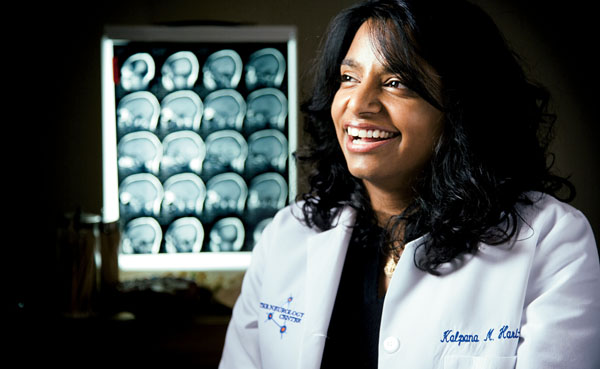This doctor's profile is from the April 2008 Washingtonian Top Doctors issue. To access the full Top Doctors database, click here.
Neurology, says Kalpana Hari Hall, is like detective work: “Every patient is kind of a new complex challenge.”
With an organ as complicated as the brain, symptoms can be esoteric, which makes listening very important. One of Hari Hall’s patients at downtown DC’s Neurology Center described episodes in which she felt that her limbs had been detached from her body and were slowly drifting away. Hall suspected seizures and ordered a brain scan. On the film, evidence of scattered strokes turned up like tiny storms.
Finding the illness underlying abstract symptoms is only half the battle. An old medical adage holds that brain doctors are long on detection and short on treatment. But that is less and less true, says Hari Hall.
For multiple sclerosis, there’s now disease-modifying medication. For Parkinson’s, there’s deep-brain surgery. For strokes, which like heart attacks often stem from blood clots, there’s a clot-busting drug called TPA. The breakthroughs can’t come too fast.
Says Hari Hall: “As America gets grayer, the need for better treatments is only going to increase.”
See a profile of pain-management specialist Lee Ann Rhodes here.
See a profile of breast-cancer specialist Colette Magnant here.
See a profile of orthopedist Philip Bobrow here.



















